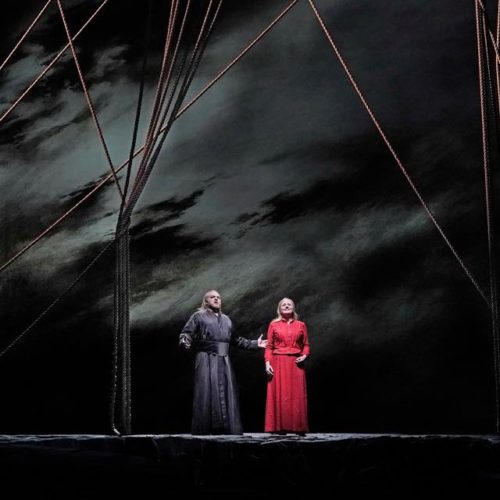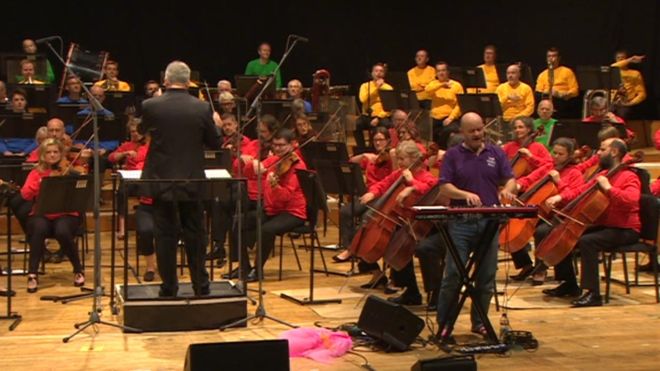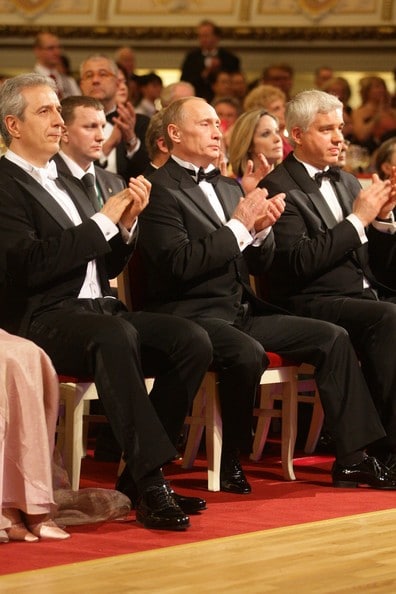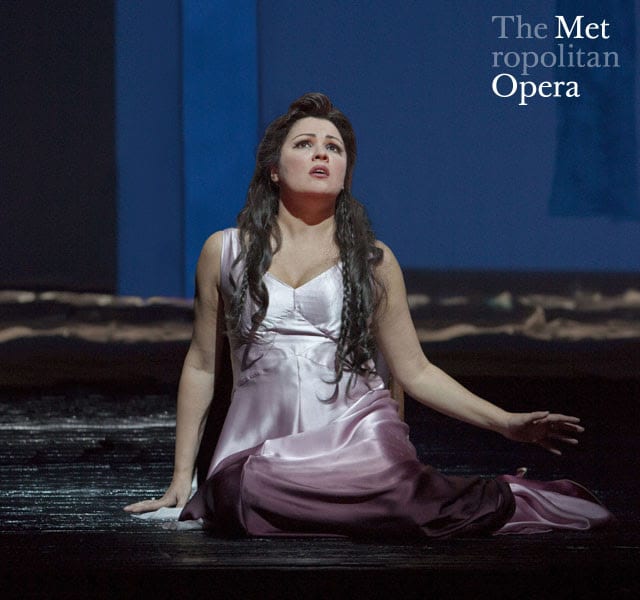Francois Girard’s supernatural retelling of Wagner’s first successul opera has divided opinion in New York.
Anthony Tommasini in the Times:
These townspeople are prone to believing in the paranormal, but terrified by it. They know all about the legend of the Dutchman. But Senta, the daughter of the Norwegian ship captain Daland, is obsessed with the story, and with a portrait of him. Mr. Girard presents the opera as taking place within her fevered imagination….
If the production had some interesting ideas, however unevenly executed, so, too, did the conducting of Valery Gergiev. He has given some of the most electrifying performances I’ve heard, including many at the Met. But his work can be curiously slack, as it mostly was on Monday.
Eric C. Simpson in NY Classical Review:
That (overture) is almost overwhelming, and Wagner struggles to match its lucid power in the rest of The Flying Dutchman. There are certainly ingenious musical elements and gorgeous melodies throughout the piece, yet he has trouble wrangling the story into a coherent libretto, and the focus of the opera suffers as a result.
Much the same could be said of the new production by François Girard that opened at the Metropolitan Opera on Monday night. This dark staging gets close to capturing the atmosphere of the piece, but too many missteps shatter the illusion. Girard offers flashes of brilliance in a sea of confusion, and it was mostly thanks to the cast that Monday’s premiere proved as satisfying as it did.

Photo by Ken Howard / Met Opera
Christopher Corwin on parterre.com:
… after Monday’s dark drab dud of a Dutchman, I … found myself feeling nostalgic for the 30-year-old August Everding Der Fliegende Holländer mounting it replaces. In an era when Wagner productions worldwide have become the standard-bearers for challenging, sometimes outrageous Regietheater, Girard’s blank vision might set a new standard for cheap and retrograde non-Regie. One could label it “idea-free” but there were several novel notions—all unfortunate!
Musically, matters were equally unhappy with a competent if uninspired cast sabotaged by the predictably scattered and stodgy conducting of Valery Gergiev. As is often the case, his head was buried in the score rarely glancing at either his orchestra or the stage. Though his players managed well enough, Wagner’s vibrantly youthful score felt ponderous and lifeless, and even surefire numbers like the striking overture (which was partly obliterated by many minutes of a freakish audio disturbance) or the final act’s rousing opening choruses and dances fell flat…



